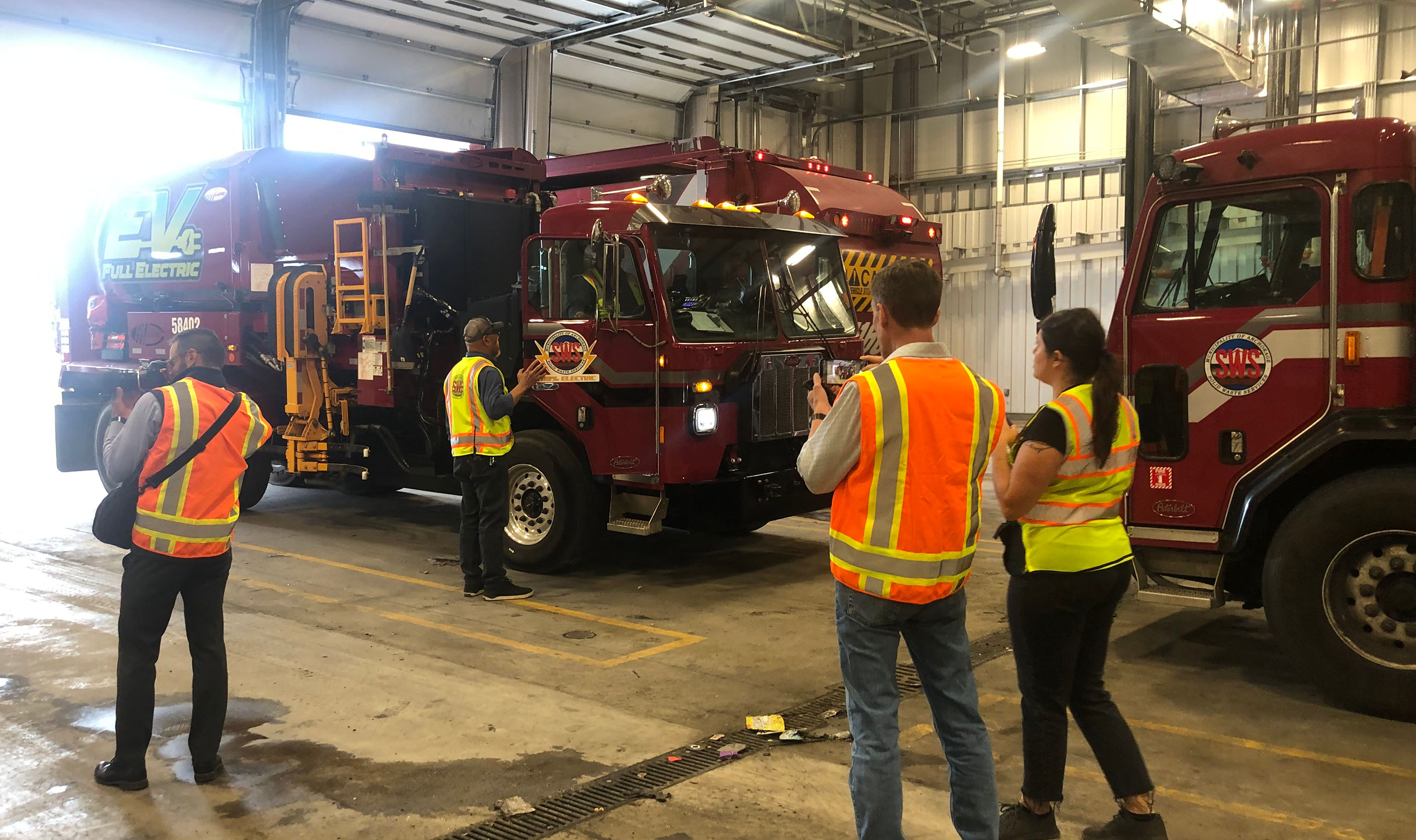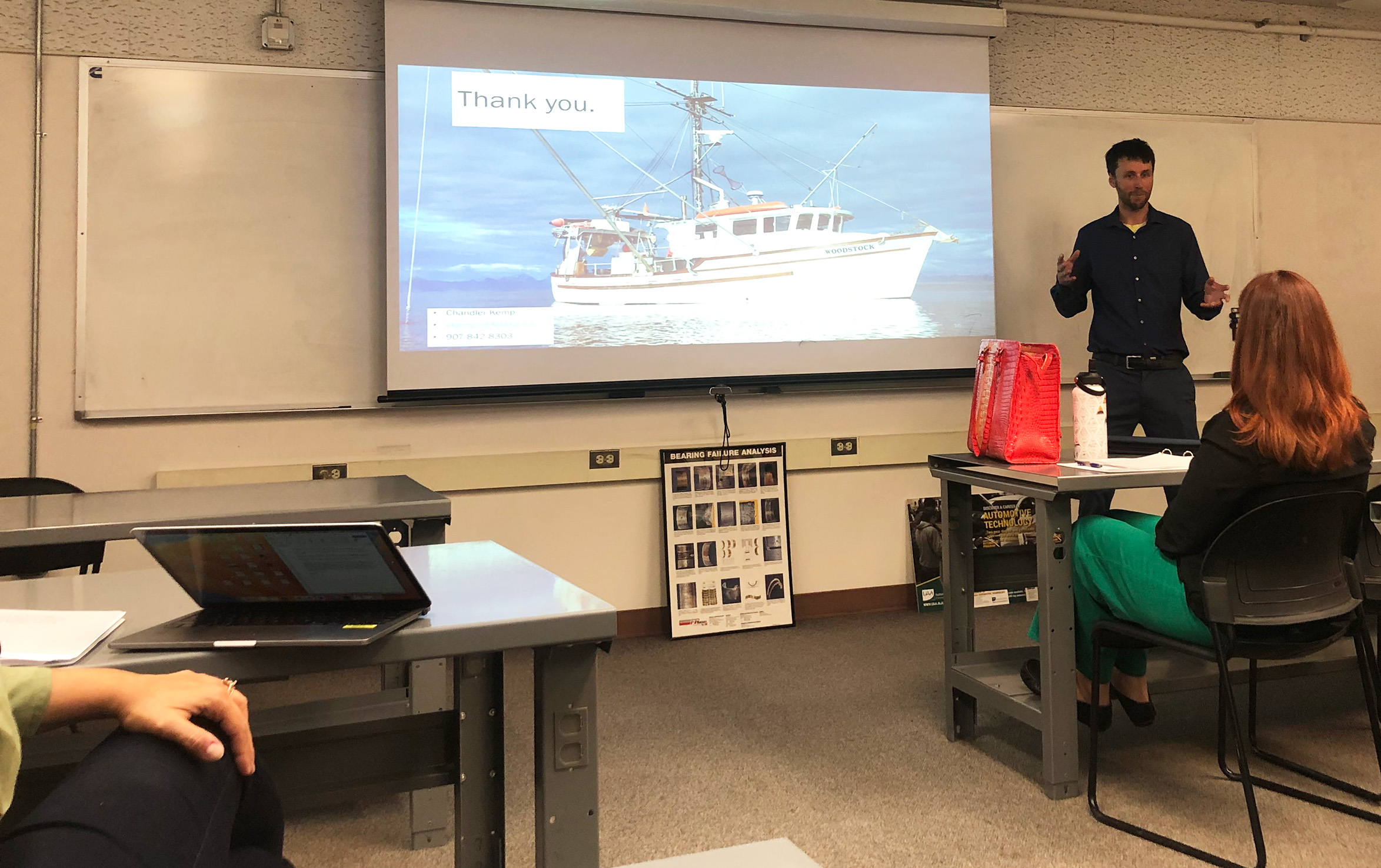BEE team shares Alaska’s unique challenges and opportunities with DOE

Participants check out one of two new electric garbage trucks in operation for the Municipality of Anchorage.
August 20, 2024
Members of Department of Energy labs and the DOE’s Vehicle Technologies Office met with organizations working on clean transportation solutions in Alaska in July.
ACEP’s Beneficial and Equitable Electrification, or BEE, team members Dominique Pride and Michelle Wilber joined a meeting with them at the National Renewable Energy Laboratory’s Alaska office in Fairbanks on July 23. Wilber presented on research on electric micromobility — small, low-speed, electric-powered transportation devices — including electric snow machines. This research is funded by the National Science Foundation under the Navigating the New Arctic program as part of a project entitled Electric Vehicles in the Arctic, or EVITA.
The next day, BEE team members Wilber and Chandler Kemp met with the group at UAA’s Automotive and Diesel Technology program in Anchorage. Raymond Weber, dean of the UAA Community and Technical College; and Darrin Marshall and Josh Brown, chair and assistant professor of the A&DT program, respectively, presented on the electric vehicle, or EV, maintenance program they are setting up. They also talked about their work with the EVITA team to bring introductory EV maintenance training to rural communities. Kemp presented his work on marine sector electrification, specifically looking at electric hybrid fishing boats. Wilber gave a more in-depth look at ACEP EV research including work funded by the Office of Naval Research and DOE.
Wilber and ACEP summer intern Greta Laesch joined a meeting at the Alaska Energy Authority that afternoon to look at the state’s efforts to increase EV charging infrastructure access and give an overview of the DOE-funded Alaska Rural EVSE Development, or ARED, project. ACEP is supporting that project via data collection and analysis, with Laesch leading up efforts to create a survey to gauge the equitable impacts of EV charging infrastructure on rural communities.
The next morning, Wilber joined the Municipality of Anchorage’s Solid Waste Services team and the DOE contingent at a tour and discussion of the DOE-funded electric garbage truck project. ACEP assists that project with data collection and analysis of the novel heavy-duty vehicles in Anchorage, specifically geared at evaluating cold weather performance.

Chandler Kemp presents on marine electrification research for the DOE visit to Alaska.
Wilber was impressed by the attention the DOE team gave to the unique landscape of transportation evolution in Alaska.
There are many small communities that are separated by large distances across Alaska and they depend on disconnected electrical grids and road systems, stitched together by air and marine transportation.
“Through these and other meetings the DOE representatives engaged in, it was clear that they gained a deeper understanding of the challenges and opportunities provided by small communities,” Wilber said.
“I hope that [this type of meeting] will allow the lab and programmatic representatives to help connect Alaska with the appropriate available resources and support as they pilot the potential solutions to cleaner transportation in the state.”


